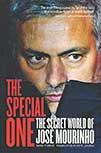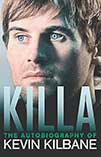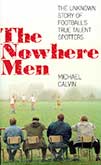 My autobiography
My autobiography
by Rio Ferdinand
Blink Publishing, £20
Reviewed by Jonathan O’Brien
From WSC 334 December 2014
At the time of writing, media speculation was rife that Rio Ferdinand’s brief spell at Loftus Road would soon be brought to an end, with QPR reportedly left cold by the 35-year-old’s efforts since he joined them from Manchester United last July. Should the press scuttlebutt be true, it will be a somewhat shabby end to what’s been an excellent career. For all his intermittent inanity off the pitch, Ferdinand remains, alongside Tony Adams, the best centre-half produced by English football since Bobby Moore.
It’s hard to tell whether #2Sides would have been a superior book had Ferdinand employed a different ghostwriter (the one he did hire, David Winner, has taken an unconventional approach to the form, as we shall see). The title, a nod to his fondness for spending hours on Twitter, immediately makes the heart sink – and for the most part, the contents are similarly disappointing. In fact, it’s less a memoir and more a succession of disparate polemics on Ferdinand’s most cherished (or, in the case of John Terry, least cherished) topics, presented with few concessions to the concept of basic chronology.
Ferdinand has been a sufficiently voluble presence in the media over the years for you to more or less know in advance what his take on each subject will be. Fabio Capello and Roy Hodgson are duly slammed. So is David Moyes for his miserable ten months as Manchester United manager, though in this case Ferdinand does leaven the harsh criticism with unstinting praise for Moyes as a person (as well as revealing that the alleged “Do it like Phil Jagielka would” exchange on the training ground never actually happened). The details of his now-terminal rift with Ashley Cole, ignited when Cole gave evidence in favour of Terry, are rendered in almost sorrowful terms.
But #2Sides suffers woefully from its utter absence of structure. No sooner has Ferdinand finished talking about the Terry racist abuse trial or the 2008 Champions League final or a title race, than we’re off into a digression about the restaurant he co-owns, or his favourite music (grime and corporate rock), or something equally thrilling. There’s even a chapter devoted solely to that Twitter account, entitled “5.7 Million And Counting”. It’s not up to much.
If you’re wondering why #2Sides has little discernible structure or cohesion, it’s worth mentioning that Winner has form for this approach. In Brilliant Orange, his award-winning 2001 study of Dutch football, the author gave the chapters random “squad numbers” for whimsical reasons. It worked very well on that occasion, but a number of his more recent books – Those Feet, Around The World In 90 Minutes – have been misfires, and so is this. Winner ghostwrote #2Sides immediately after finishing Dennis Bergkamp’s memoir Stillness And Speed, so there may or may not have been an element of racing to beat the clock.
By far the most substantial chapter comes early on, where Ferdinand explains his approach to the art of defending, going into fascinating detail about how he could “smell out” one kind of attacking danger and his long-time partner Nemanja Vidic could scent another. A penny for Tony Fernandes and Harry Redknapp’s thoughts if they read it.
 The secret world
of José Mourinho
The secret world
of José Mourinho The autobiography of Kevin Kilbane
The autobiography of Kevin Kilbane The unknown story of football’s true talent spotters
The unknown story of football’s true talent spotters